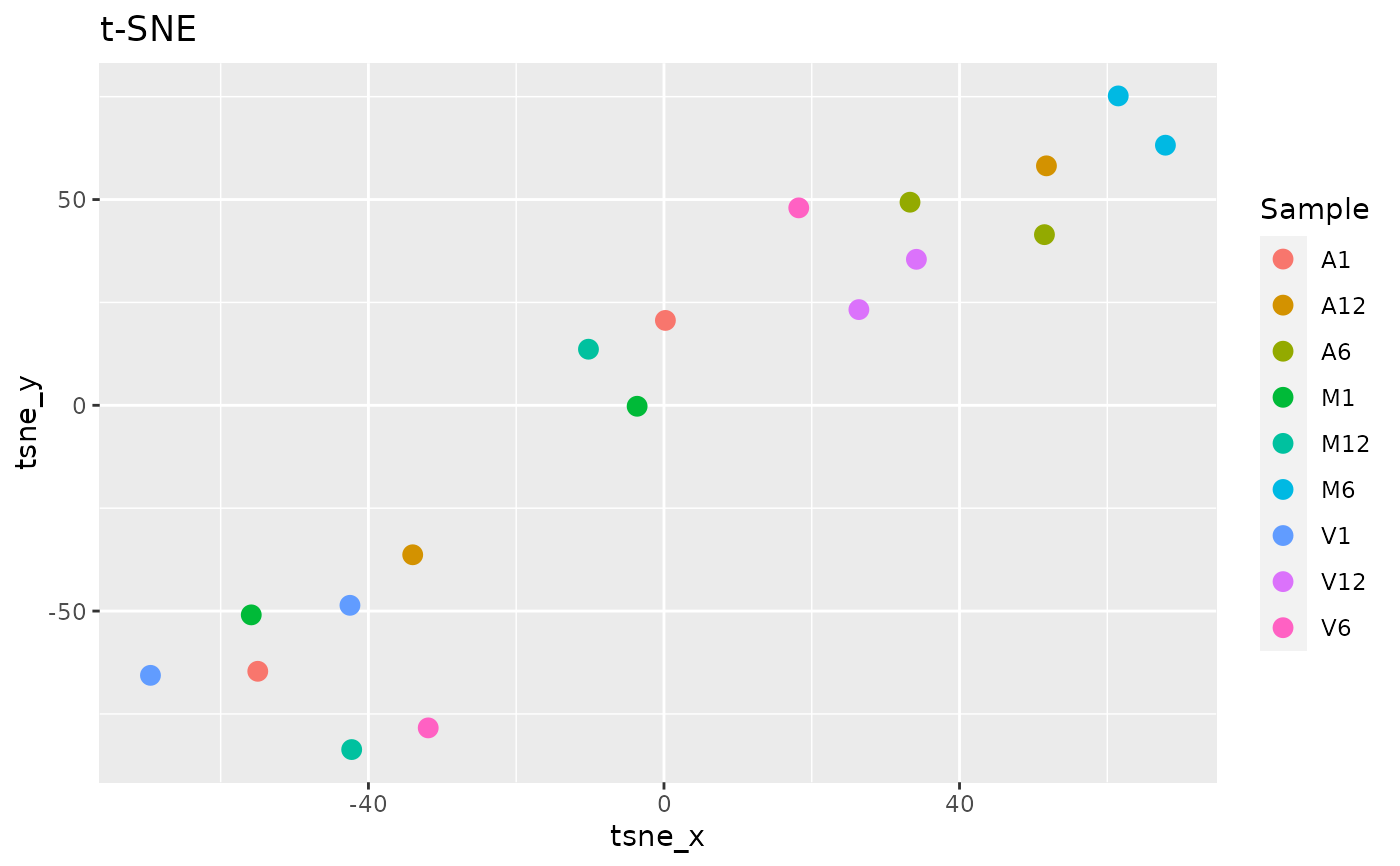t-Distributed Stochastic Neighbor embedding with tSNEplot
tSNEplot.RdThis function computes and plots t-Distributed Stochastic
Neighbor embedding (t-SNE) analysis for unsupervised nonlinear
dimensionality reduction of count expression matrix. Internally, it is
applied the
Rtsne::Rtsne() function, using the exact t-SNE computing with theta=0.0.
tSNEplot( countMatrix, targets, plotly = FALSE, savePlot = FALSE, filePlot = NULL, ... )
Arguments
| countMatrix |
|
|---|---|
| targets | targets |
| plotly | logical: when |
| savePlot | logical: when |
| filePlot | file name where the plot will be saved. For more
information, please consult the |
| ... | additional parameters for the |
Value
returns an object of ggplot or plotly class.
References
Jesse H. Krijthe (2015). Rtsne: T-Distributed Stochastic Neighbor Embedding using a Barnes-Hut Implementation, URL: https://github.com/jkrijthe/Rtsne
Examples
targetspath <- system.file("extdata", "targets.txt", package = "systemPipeR") targets <- read.delim(targetspath, comment = "#") cmp <- systemPipeR::readComp(file = targetspath, format = "matrix", delim = "-") countMatrixPath <- system.file("extdata", "countDFeByg.xls", package = "systemPipeR") countMatrix <- read.delim(countMatrixPath, row.names = 1) set.seed(42) tSNEplot(countMatrix, targets, perplexity = 5)
